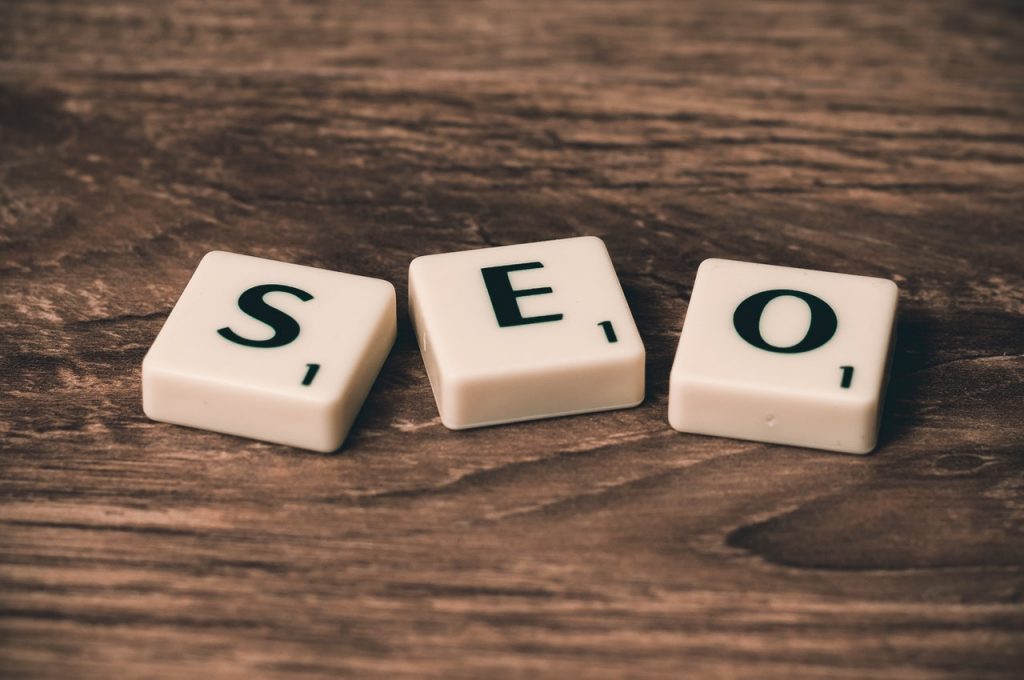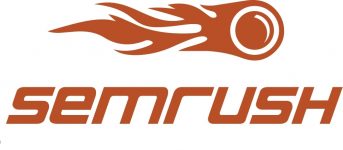Reviews + Guide
Top 10 SEO Tools in 2023
25-02-2022
Google receives over 40,000 searches every second, and most of the users get their answers on the first few top results page. To increase website traffic and business, you need to rank highly on search engine results pages, or SERPs. But, how to get a high ranking?
Well, the answer is SEO research and analysis.
Fortunately, you don’t have to do all the SEO research. There are many SEO tools to simplify the process for you. Through SEO tools, you can save a lot of time researching SEO factors like keywords, content ideas, backlinks, rank tracking, and SEO audits. It also provides you with the most accurate data to help your site rank better and find out what else could be done to outrank your competitors.
But the only problem you might get is selecting the right SEO tool as there are hundreds of tools in the market to choose from. To help you out, this guide breaks down what SEO is, why it’s important, its key elements, and the best 10 SEO tools to get started with.
What is SEO or Search Engine Optimization
SEO or Search engine optimization is a process of improving your website’s rank in the search results to increase more free, organic traffic. In other terms, it refers to optimizing your site’s rankings in search engines, such as Google, Yahoo, Bing, or other search engines, to make it more visible to users searching for your products and services.

How does SEO function?
Web search tools like Google and Bing use bots to slither pages on the web, going from one website to another, gathering data about those pages, and placing them in a record. Consider the record like a goliath library where an administrator can pull up a book (or a site page) to assist you with finding the exact thing you’re searching for at that point.
Then, calculations investigate pages in the record, considering many positioning variables or signs, to decide the request pages ought to show up in the indexed lists for a given inquiry. In our library relationship, the curator has perused each and every book in the library and can tell you precisely which one will have the solutions to your inquiries.
Our SEO achievement elements can be viewed as intermediaries for parts of the client experience. It’s the way search bots gauge precisely how well a site or website page can give the searcher what they’re looking for.
Dissimilar to paid search promotions, you can’t pay web search tools to get higher natural pursuit rankings, and that implies SEO specialists need to invest the energy. That is where we come in.
We’ve additionally got a fresh out of the plastic new Niches area that profound plunges into the SEO achievement factors behind three key specialties: Local SEO, News/Publishing, and Ecommerce SEO. While our by and large SEO Periodic Table will assist you with the accepted procedures, knowing the subtleties of SEO for every one of these Niches can assist you with prevailing in query items for your independent venture, formula blog, and additionally online store.
The hunt calculations are intended to surface applicable, legitimate pages and furnish clients with a productive pursuit experience. Advancing your site and content in view of these elements can assist your pages with positioning higher in the list items.
How Does Google Rank Websites?
Google’s Search Algorithm is the single term used for all the different algorithms, technologies, and machine learning systems used by Google to rank the websites.
It is primarily determined by how your website competes with other sites for a particular keyword. Websites following the best SEO practices outrank their competitors and rank on top for those specific keywords.
Google ranks websites based on three basic steps. These are:
- Crawling – Search engines use bots or spiders to scan websites, copy the content, and store the information in an index.
- Indexing – Adding web pages to Google’s search results is called indexing. A website that is not indexed by a search engine will not be found by anyone.
- Ranking – Search results show the most relevant sites (from their index) whenever you search for something on Google. There are multiple factors influencing the results, such as the user’s location, experience, and language.
What is an SEO software tool and how is it useful?
The right tools and skills are crucial to improving your ranking through search engine optimization. SEO software helps your site to get free traffic through tools like keyword research, rank tracking, link builder, SEO audits, content optimization, etc to rank higher in search engine results.
These tools help you to improve your DA (domain authority), PA (page authority), and performance. By utilizing them, you can optimize your targeted keywords to determine your SEO strategy. Basically, their primary job is to help your site generate trust to increase rankings among your target audience.
To be successful at SEO, you shouldn’t ignore the valuable data and insights provided by different SEO tools. Using tools gives you a competitive advantage while also saving a lot of your time.
Listed below are some of the essential SEO tools that you should use:
Top 10 SEO Tools in 2022
Why is SEO important for your website/ Business?
The reason why SEO is a crucial part of digital marketing is that every year people perform trillions of searches on search engines, mostly with commercial intent to know about any product and service.
- Visibility and leads
Users automatically trust you if you rank high in search engines. Online searchers are more likely to click on the top suggestions that search engines show them when looking for a product or service. SEO helps your site to get a higher ranking in search results and gain more visibility, which means potential customers are more likely to click and visit your site and get converted.
- Website Traffic
Sales opportunities are missed if customers cannot find your website. Through SEO, you can increase the organic traffic of your website, which will result in more visitors to your site. This in turn directly contributes to increased sales because the more relevant audience visits your website, the more likely you are to end up selling them.
- Trustworthy
Google, Bing, and other search engines will list you higher if you have a great SEO score. While higher rank increases visibility, a complimentary benefit is the trust of your audience that you gain over time. Because users tend to rely on the recommendations of the search engines, obtaining a higher position for the keywords that a user is performing searches for will solidify the image of your service or product in the minds of users as trustworthy.
- Brand Growth
It’s no secret that SEO is crucial to the growth of your brand. If your site ranks high on search engines for various high-volume keywords, you will receive more organic (non-paid) traffic. A well-optimized website is likely to gain more customers and generate more sales.
Understanding SEO Basics: Beginner’s Guide to Search Engine Optimization
Factors affecting the SEO elements:
1. On-page SEO or On-site SEO
On-page SEO refers to the process of improving your site’s content to make it more search engine friendly. It is important to signal the search engines exactly what your webpages are about when optimizing them for search engines. Since these factors are within your control, they will show results faster. An on-page SEO strategy includes all that you can do on your site, from optimizing the content to implementing technical aspects.
Elements of On-page SEO:
- Keyword Research
To optimize your website, the first step is to identify what keywords you wish to rank for. For doing this, you need to perform keyword research. The process involves choosing primary and secondary keywords based on which you create your content and meta tags.
Keyword research consists of the following components:
- Search volume
- Keyword Competition, and
- Relevancy
To find keywords, you can also use tools such as Google Keyword Planner or Ahrefs. After selecting the keywords, you can start to optimize your web pages around those keywords.
- Technical / Tags
Technical SEO factors like HTTPS, performance, Title tag, headings and subheadings, meta description, internal links, etc are crucial to help search engines crawl and understand the purpose of your site/ landing page.
- Title Tag/ Meta Title
Title tags display a summary of your web page content as a header title element in search engine results. Furthermore, it influences the CTR (click-through rates), thus, it’s one of the most fundamental factors of on-page SEO. The first 50 to 60 characters of your meta title/ title tag is displayed by the search engines.
- Meta Description
A meta description summarizes the content of your webpage. It also appears in the results of search engines. Meta descriptions help users understand your webpage’s content before visiting it and it also influences your website’s click-through rates (CTR).
- URL Structure
Using SEO-friendly URLs is a good practice because they help Google to know what your web page is about. In SEO, poor URL structure can result in lower rankings for your website.
- Header Tags
Your content’s headings and subheadings are identified by search engines through header tags. A header tag hierarchy ranges from H1 tag to H6 tag. The main heading on a page is identified by the H1 tag, a subheading is identified by the H2 tag, and so on. Such tags allow search engines to better understand your page content.
- User experience and UX – Design
The user experience and how your website is liked by the users are also very important to Google. User-friendliness is determined by factors such as time spent on your site, bounce rate, CTR, etc. It also includes:
- Site speed – Optimize your site to make sure it doesn’t take too long to open, otherwise, there’s a high chance your visitors will leave without visiting it.
- Mobile-friendly – Your website must be compatible with all devices and screen sizes because most internet users access it from smartphones!
- Internal Link or Inbound Link
Web pages on your website are linked together by internal links. Users can navigate the site using them. Moreover, they are useful for spreading link equity (value exchanged between websites).
- Content Quality
One of the most important factors that determine your website rank is the quality of your content. Google looks at font size, image quality, content depth, and other factors when determining how to rank your website. Videos, interactive elements, graphics, readability, bullet lists, etc. also determine the quality of your content.
2. Off-page SEO or Off-site SEO
Off-page SEO techniques include the efforts made outside your website to gain a higher ranking. They are factors you have less control over, so they take time to show results. The goal of off-page SEO is to acquire quality backlinks that prove to search engines your website has value and authority.
Remember that effective SEO strategies involve both on-page and off-page elements.
Elements of Off-page SEO:
- Backlinks
Search engines use trust as a determining factor when ranking websites. Referrals from high-quality websites are one of the most crucial indicators of trust. The process by which your website links to others is known as backlinking or external link building. Off-page SEO focuses on link building. High-quality backlinks from high-ranking websites are very important for search engine rankings. A link-building strategy must always focus on content. The best way to get backlinks is to create high-quality content and establish relationships with influencers and fans.
Link building strategies include:
- High-quality content creation – Unique, well-structured, original, and well-read content attracts links from other websites.
- Engage off-site – Visit other websites that are similar to yours. Search for relevant content on other websites. Share your content with others and they’ll share their content with you for backlinks. Influencers can also help you build trust by sharing your content. Your ranking is influenced by social signals such as likes, shares, comments, etc.
If you’re looking for ways to improve your website ranking and get more free traffic, then SEO software is a great option. We’ve provided a list of some of our favorite tools that can help with everything from keyword research to rank tracking to link building. So what are you waiting for? Try out one of these tools today and see how your website ranking improves!













